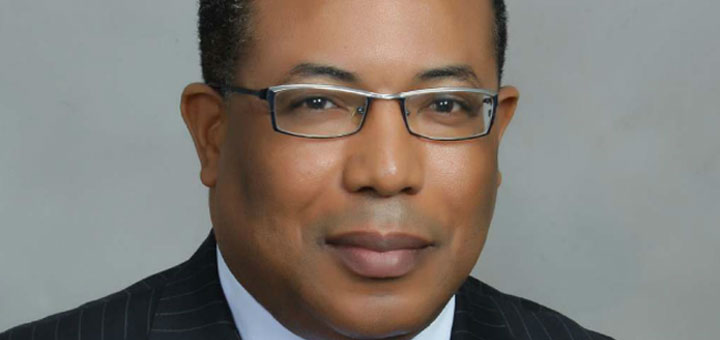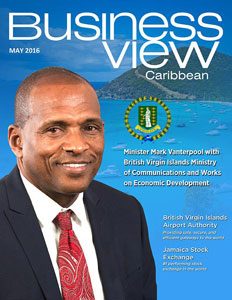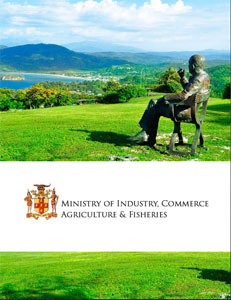The Ministry of Industry, Commerce and Agriculture
A conversation with former Minister Anthony Hylton
Business View Caribbean interviews with Anthony Hylton, former Minister of The Ministry of Industry, Commerce and Agriculture.
The Ministry of Industry, Commerce and Agriculture (MICAF) is described as Jamaica’s “Business Ministry.” Its mandate is to lead in the development of policies that will create growth and jobs, while achieving social inclusion and consumer protection. The Ministry, working with its stakeholders, is primarily responsible for business policy development, monitoring, and evaluation, while giving direction and oversight to a cluster of implementing departments and agencies.
The mission of the Ministry of Industry, Commerce and Agriculture is:
- To increase local and foreign investments
- To be the driver of innovation and job creation
- To promote and protect Jamaican brands, consumers, and businesses
- To create an enabling environment to increases earnings from export
The following text is taken from a recent conversation with former Minister, Anthony Hylton, who oversaw the Ministry for the past several years when it was called the Ministry of Industry, Investment and Commerce. Although both the name and the leadership of the Ministry changed when a new government was installed in Jamaica, this past February, its basic functions remain the same. And former Minister Hylton’s comments are still eminently relevant and timely.
Mr. Minister, can you speak a little bit about the business climate in Jamaica and why it’s a good place to do business?
“The global indices indicate that Jamaica is in a ‘sweet spot’ and has entered a period where we have focused on improving our business rankings in a variety of areas: in our ease of doing business; in our competitiveness; in our profile for investment; and in logistics performance. Forbes Magazine sums it up best by saying Jamaica is, at the moment, the best country in the Caribbean for doing business and for investing. We have what it takes to attract investment, drive industrial development, and enable commerce to take place in a very efficient and competitive manner. The mix of policies and programs being pursued by the government, and the professionalism that increasingly exists within its institutions, lend themselves to certain validity and provide a platform for businesses to flourish.”
Awhile ago, we spoke to the Minister of Finance and Planning who talked about how that Ministry helped move the country away from high debt and high unemployment. What is your interaction with the Ministry of Finance and Planning and do you agree that the programs that the government has put in place have been successful?
“Absolutely. The relationship is a symbiotic one – a joint approach of working very closely. The Ministry of Finance sets the macro-policies and the macro-framework. My Ministry looks at the real economy and ensures that business gets done. So, it’s really sort of a hand-in-glove approach, taking the cue from the macro-policies and strategies and ensuring that this Ministry and its several agencies interpret that policy thrust correctly and put in place the strategies, programs, and plans to create the conditions for successful businesses.”
A major initiative in your Ministry, and the country as a whole, has been its desire and intention to become the world’s fourth logistics hub. Can you speak about the progress that’s being made in that regard?
“Progress certainly has been made from the conceptual framework that recognizes Jamaica’s geo-strategic location in the Caribbean vis-à-vis the expanded Panama Canal, and the larger markets in this hemisphere – the United States, Canada, and Central and South America – and the trade route back to Europe. Jamaica enjoys a very strategic position in global trade. But we recognize that the geo-strategic location, by itself, is not sufficient. We have to put in place the critical infrastructure around the maritime and aviation opportunities. This, we are doing.
“We have gone into a concession arrangement with the third largest shipping entity in the world – CMA CGM – utilizing the port of Kingston, which is the seventh largest natural harbor in the world and the region’s largest transshipment port, as a major hub for its operation. Through that, we will be expanding the port, modernizing its capabilities, and deepening its draft to accommodate the largest ships coming through the Panama Canal, and generally helping to create a better environment for maritime services and activities. Similarly, we are pursuing the divestment of the airport through concession management to look at how we are going to expand its offerings, particularly as it relates to cargo traffic, and to link those two special economic zones to provide an industrial platform for global multi-nationals to operate their manufacturing and logistics operations here in Jamaica.
“So, a lot is happening. And we are focused, as well, on our internal logistics, meaning our network of highways and railways to link into these special economic zones and to create that environment for large multi-nationals to position themselves in this hemisphere and participate in global trade. So, we see the mega-ports of Singapore, Dubai, and Rotterdam, and we want to duplicate that here in Jamaica.”
Will there come a day when the ribbon is cut and the world recognizes Jamaica as the fourth hub, or is it an ongoing process?
“It is an ongoing process, but there’s a minimum set of developments we all look to: an improved maritime and transshipment hub port, improved aviation and air cargo, links by rail, and the development and expansion of special economic zones. These are some of the minimum conditions. We’re also looking at our international financial services hub, because we believe it ties in very neatly and synergistically with logistics services across a range of activities. So, we’re developing a financial services sector based, not on tax havens or anything of that nature, but on the critical services component of the Jamaican labor force and its ability to deliver legal accounting, and banking services to financial entities.”
Can you speak about the role of foreign investment over the last several years?
“We’ve had a growth in investment. When this administration entered office investment had fallen to about $200 million. Now it’s over $1.2 billion in the calendar year just ending. And we look forward to more significant investment, based upon our policies and strategies. Foreign investors have brought their creativity, their linkages, and their best practices, especially in the area of logistics. And we look forward to increasing these investment activities over the coming year.”
What are your Ministry’s goals for the next few years and what challenges need to be overcome in order to meet them?
“The goals for our division are the ones set forth in our ‘Vision 2030’ (the country’s National Development Plan). We see Jamaica becoming a developed economy and society by that period of time. What that translates into is the quality of life – Jamaica being the choicest place to live, work, raise a family, and do business. This Ministry has a significant role to play in the economic growth and job creation aspects of it.
“We have to move our unemployment rate from 12 percent down to a manageable five or six percent. We have to increase the rate of growth of our economy to make that possible, which means we have to expand training opportunities at all levels – tertiary, vocational, and practical. We have to grow investment and we have to ensure a productive labor force and drive productivity and competitiveness in the economy. We see all of this coming together around a logistics-centered economy, largely taking our cue from the fact that logistics speaks to the ease and speed of doing business. It also addresses global connectivity and the requirement for Jamaica to be better inserted into the global trading system.”
Some economists predict that global growth is going to be slow, in some places stagnant, for years to come. Do you agree or disagree with those prognostications?
“There are some clouds on the horizon, but there are also silver linings. You have to take into account a range of factors. The United States economy, I believe, is growing. It will pull Europe along particularly as some of the trade deals are done. I think that will unleash a certain amount of economic activity. So, I think it’s a mixed environment. I think the price of energy will find equilibrium, because, obviously, it is what is needed to drive a sustainable energy sector. It will find some sort of level where producers and consumers have a much better kind of deal – probably more conducive to driving global trade. And that will happen because of the rise of the U.S. energy sector.
“So, I think there are some trends we have to watch. The economy of the United States is a strong pull factor for the Jamaican economy given its geo-strategic location. We don’t think everything will be rosy, but then it’s very seldom that everything is so aligned in the global economy. In Jamaica, we have to continue to modernize and improve the economy and make it much more competitive, and I think that there’s room for significant growth.”
Jamaica, historically, has been a net importer of goods and foodstuffs. Does your Ministry help sustain and nurture home-grown production of goods and products so that the balance of trade can become more equalized?
“While it’s not the principal focus, the mix of activities has tended to have a direct contribution in that area, because of the policy thrust that we have now created as a logistics-centered economy. So yes, as the Ministry of Investment, Industry and Commerce, the more industrialized we become, the more we will be able to feed ourselves and to export more to the rest of the world.”
Does the Ministry have any oversight over sustainability and environmental initiatives?
“Not directly, but we contribute in the focus we place on the kind of investment that we bring into the country. In the matter of energy, we are keener to bring in clean energy than we are with, say, coal or some other high carbon energy source. So, we get to influence that by the focus and kind of promotional efforts we make through our investment agency, JAMPRO, which is our chief promotional agency that promotes Jamaican investment opportunities, abroad, engaging the private sector and the business sector in various countries around the world.”
In closing, what are the most important points you would like our readers to know about the Ministry of Industry, Investment, and Commerce?
“It is a Ministry with a broad portfolio, focused on its drive to make Jamaica a more attractive place to do business. And we believe that the Ministry is creating a very dynamic environment for Jamaica as a hopeful and confident place. And we start with an advantage, because the Jamaica brand is a known brand. Among small economies and small countries, Jamaica is exceptionally well-known.”
Check out this handpicked feature on The Spectrum Management Authority of Jamaica.
AT A GLANCE
WHO: Manpower & Maintenance Services Ltd.
WHAT: Providers of facilities maintenance, outsourced services, and workforce education
WHERE: Kingston, Jamaica
WEBSITE: www.miic.gov.jm




 This information will never be shared to third parties
This information will never be shared to third parties